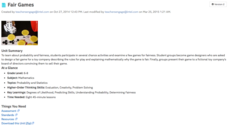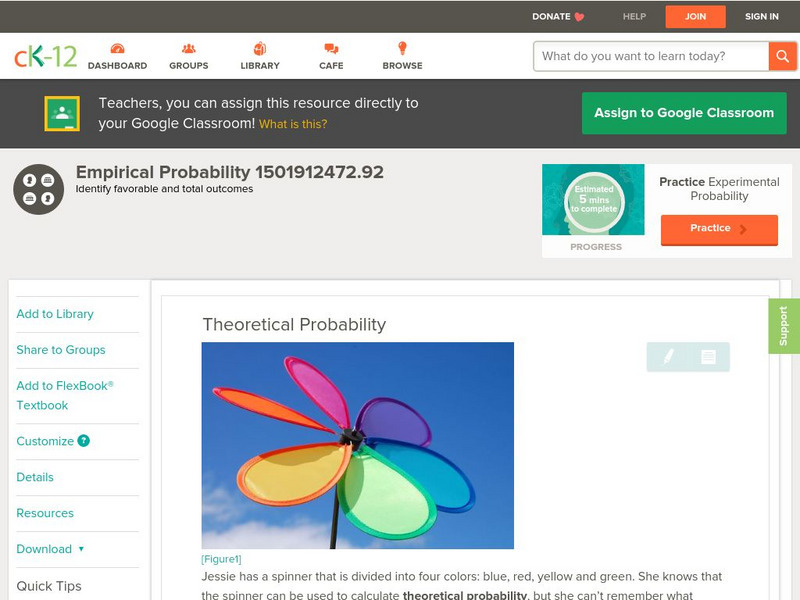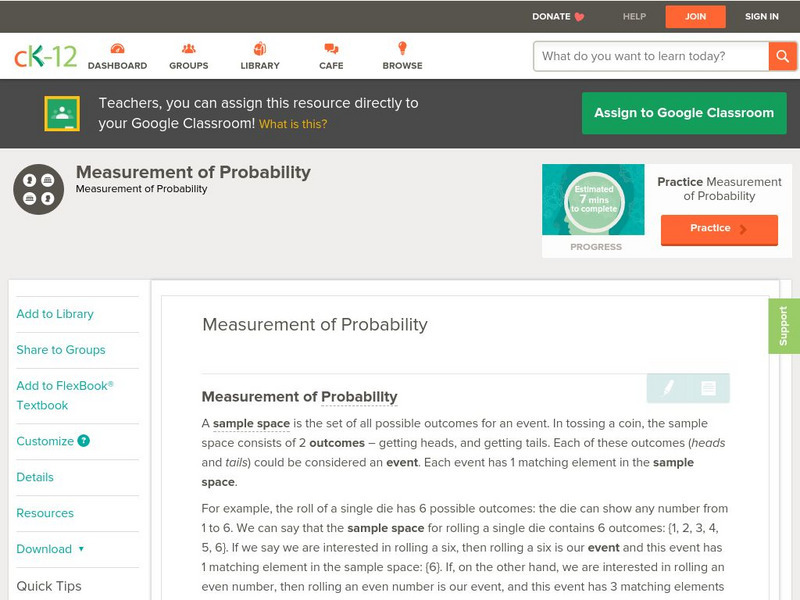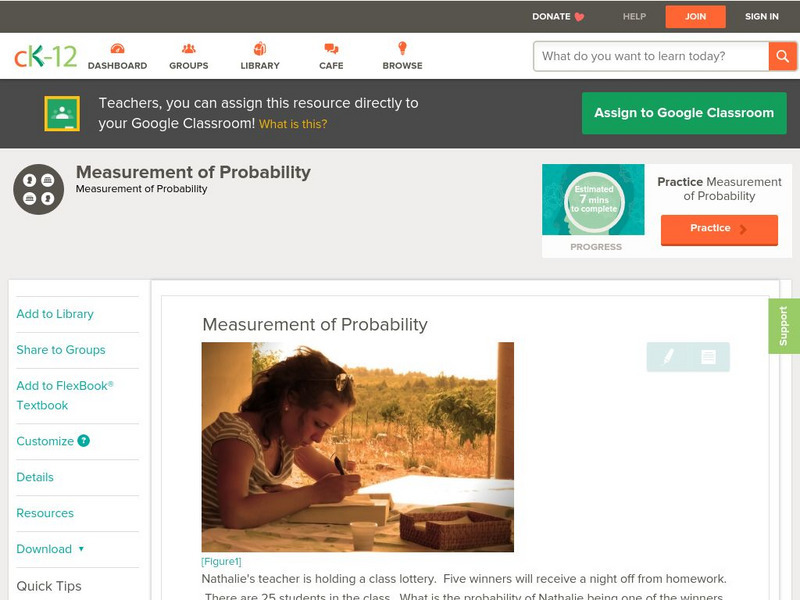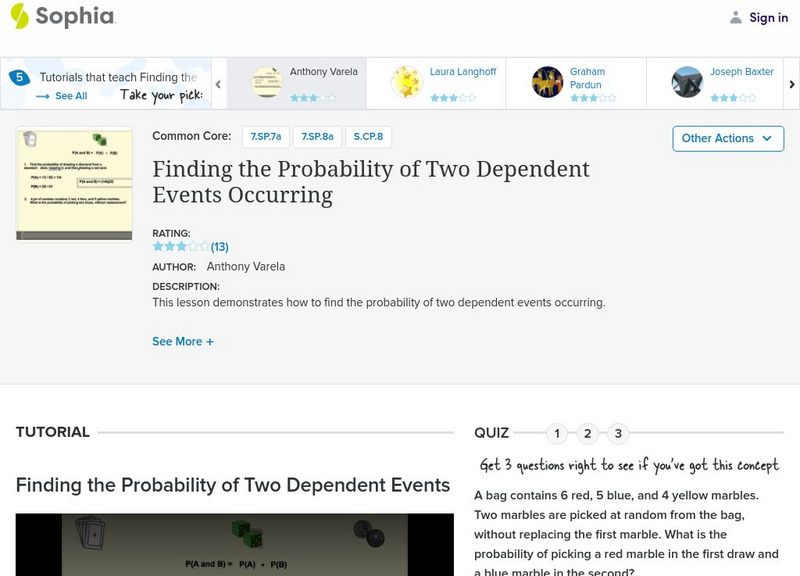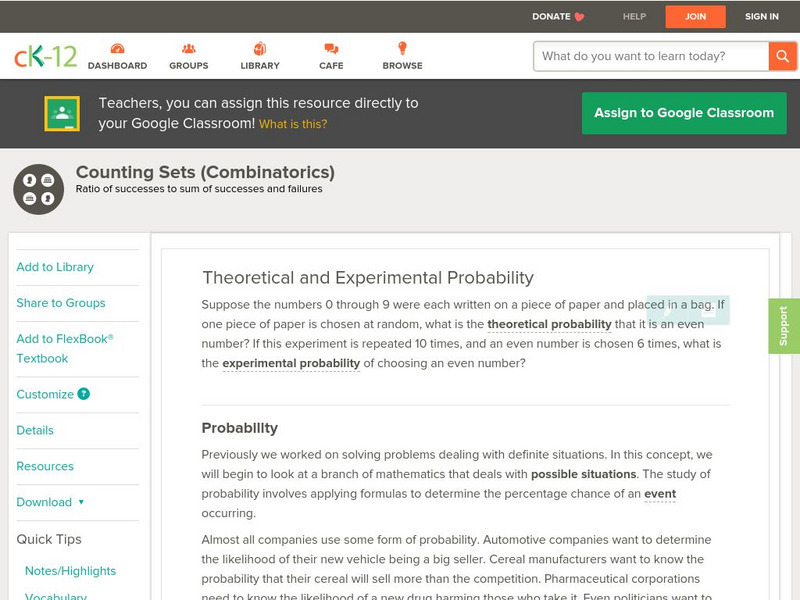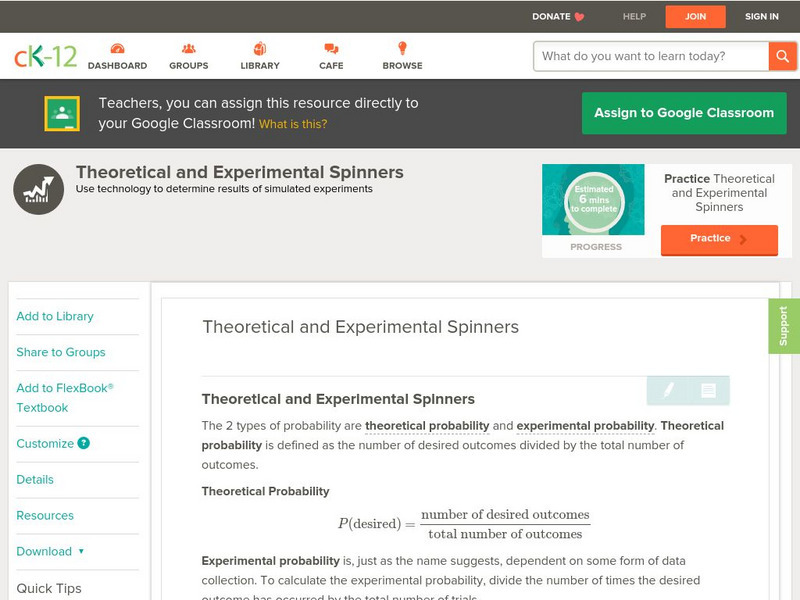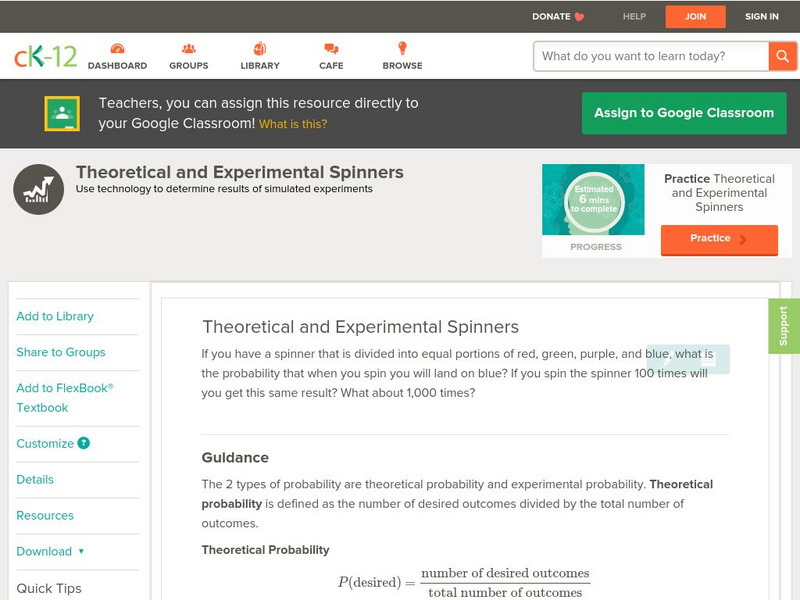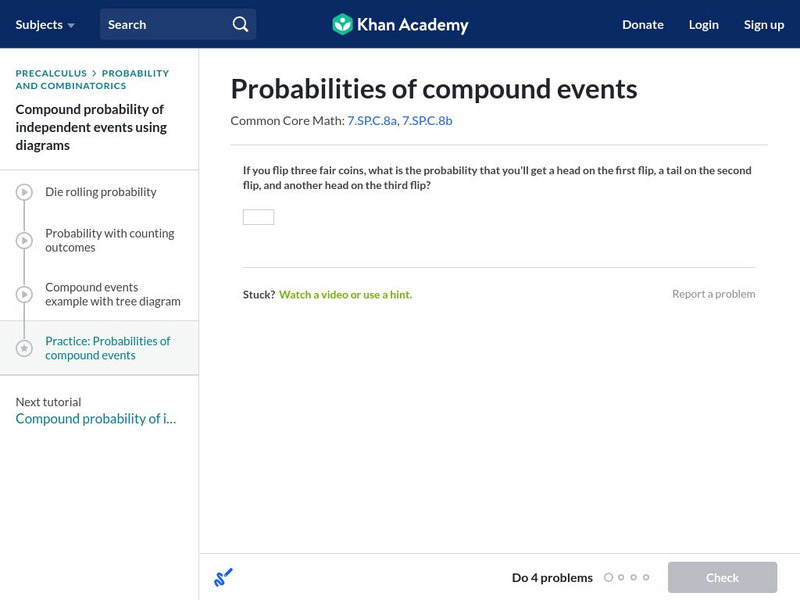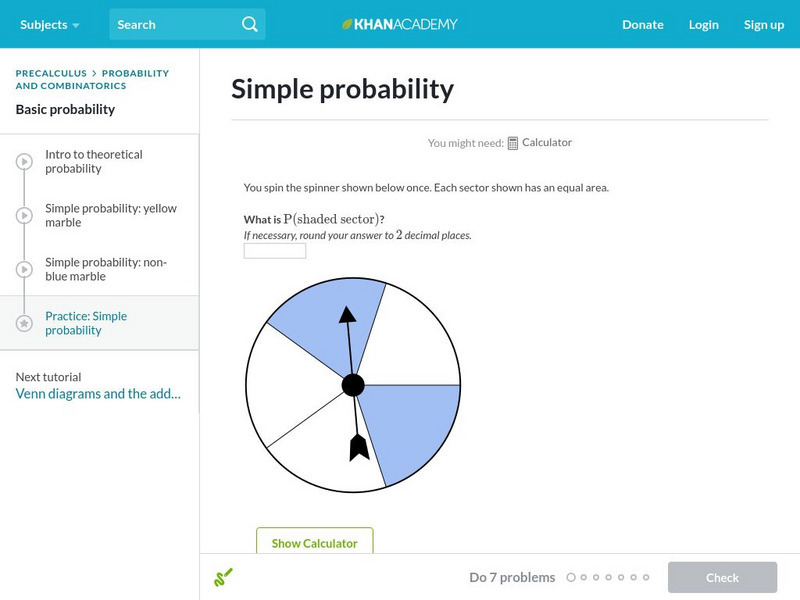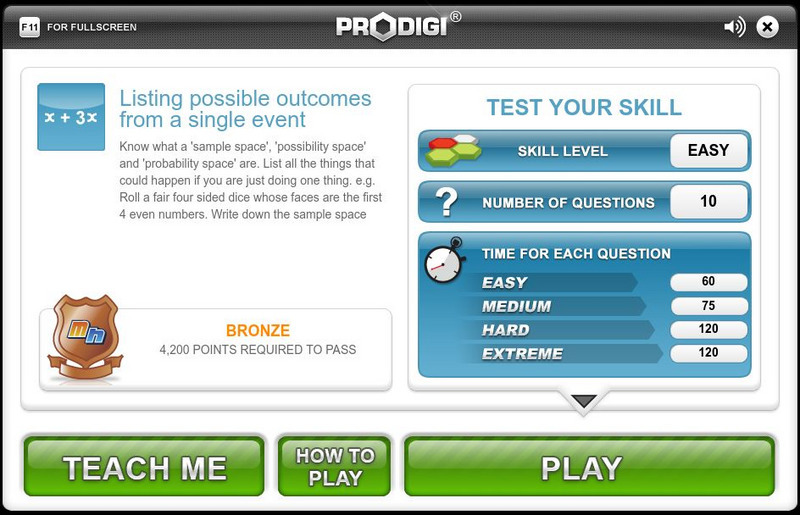National Security Agency
Are You Game? A Lesson Connecting Fractions and Probability
Exactly how fair are the board games children grow up playing? Young mathematicians investigate this questions as they work their way through this five-lesson series on basic probability.
Intel
Fair Games
Who said things were fair? The unit introduces probability and its connection to fairness. The class interacts with activities of chance and plays games to relate them to fairness. Groups design a fair game and develop a presentation....
North Carolina State University
Exploring Genetics Across the Middle School Science and Math Curricula
Where is a geneticist's favorite place to swim? A gene pool. Young geneticists complete hands-on activities, experiments, and real-world problem solving throughout the unit. With extra focus on dominant and recessive genes, Punnett...
Calvin Crest Outdoor School
Survival
Equip young campers with important survival knowledge with a set of engaging lessons. Teammates work together to complete three outdoor activities, which include building a shelter, starting a campfire, and finding directions in the...
CK-12 Foundation
Ck 12: Probability: Empirical Probability Grade 8
[Free Registration/Login may be required to access all resource tools.] Define and calculate theoretical probability.
CK-12 Foundation
Ck 12: Probabilities of Compound Events
[Free Registration/Login may be required to access all resource tools.] A detailed explanation of how to use tree diagrams and tables to find the probability of compound events. Also looks at dependent events. Includes example problems...
Oswego City School District
Regents Exam Prep Center: Theoretical Versus Empirical Probability
Use this site to learn the difference between theoretical and empirical probability. A practice page is included for each and two teacher resource pages contain classroom activities.
Texas Education Agency
Texas Gateway: Exploring Probability With Independent Events
Given a problem situation, students will use experimental data or theoretical probability to make predictions and determine solutions to situations involving independent events.
CK-12 Foundation
Ck 12: Probability: Measurement of Probability Grades 9 10
[Free Registration/Login may be required to access all resource tools.] Find the number of outcomes, theoretical probability, and odds of events involving coins, dice, and cards.
CK-12 Foundation
Ck 12: Probability: Measurement of Probability Grade 7
[Free Registration/Login may be required to access all resource tools.] Write and predict theoretical probability using fractions, decimals and percents.
CK-12 Foundation
Ck 12: Probability: Definition of Probability
[Free Registration/Login may be required to access all resource tools.] Recognize and calculate simple theoretical probability.
Oswego City School District
Regents Exam Prep Center: Theoretical and Empirical Probabilities
The mathematics tutorial investigates theoretical and empirical probabilities. The lesson consists of class notes, examples, and practice problems with solutions. The teacher resource includes activities that explore empirical and...
Sophia Learning
Sophia: Finding the Probability of Two Dependent Events Occurring: Lesson 4
This lesson demonstrates how to find the probability of two dependent events occurring. It is 4 of 4 in the series titled "Finding the Probability of Two Dependent Events Occurring."
CK-12 Foundation
Ck 12: Probability: Theoretical and Experimental Probability
[Free Registration/Login may be required to access all resource tools.] Here you'll learn about theoretical and experimental probability, including how to describe sample spaces and how to conduct probability simulations. Includes...
CK-12 Foundation
Ck 12: Statistics: Theoretical and Experimental Coin Tosses
[Free Registration/Login may be required to access all resource tools.] Compare theoretical and experimental probability with coin tosses.
Sophia Learning
Sophia: Introduction to Probability
Introduction to Probability is a resource that provides assessment and teacher tutorials that focus on mathematic concepts such as probability, outcomes, events, probability distribution, laws, values and odd.
PBS
Pbs: The Lowdown: Your Odds of Winning Powerball: Probabilities of Compound Events Using Visuals
In this video, explore the odds of winning the Powerball lottery and learn what few people realize about their chances of winning: they are miniscule. In the accompanying classroom activity, students create simple lottery models to help...
Texas A&M University
Wtamu Virtual Math Lab: College Algebra: Probability
Find definitions of several terms associated with probability, such as experiment, sample space, event, and empirical probability, and view example problems and step-by-step solutions. Complete practice exercises and check your answers...
Texas Education Agency
Texas Gateway:using Theoretical and Experimental Probability to Make Predictions
Given an event to simulate, the student will use theoretical probabilities and experimental results to make predictions and decisions.
CK-12 Foundation
Ck 12: Statistics: Theoretical and Experimental Spinners
[Free Registration/Login may be required to access all resource tools.] Compare theoretical and experimental probability.
CK-12 Foundation
Ck 12: Statistics: Theoretical and Experimental Spinners
[Free Registration/Login may be required to access all resource tools.] Compare theoretical and experimental probability.
Khan Academy
Khan Academy: Probabilities of Compound Events
Practice using sample space diagrams to find probabilities. Students receive immediate feedback and have the opportunity to try questions repeatedly, watch a video or receive hints.
Khan Academy
Khan Academy: Simple Probability
Practice finding probabilities of events, such as rolling dice, drawing marbles out of a bag, and spinning spinners. Students receive immediate feedback and have the opportunity to try questions repeatedly, watch a video or receive hints.
Mangahigh
Mangahigh: Data: Listing Possible Outcomes From a Single Event
Students learn about the concept of outcomes by exploring a tutorial. They can then test their knowledge by taking a ten question assessment that increases in difficulty as they correctly answer questions.

